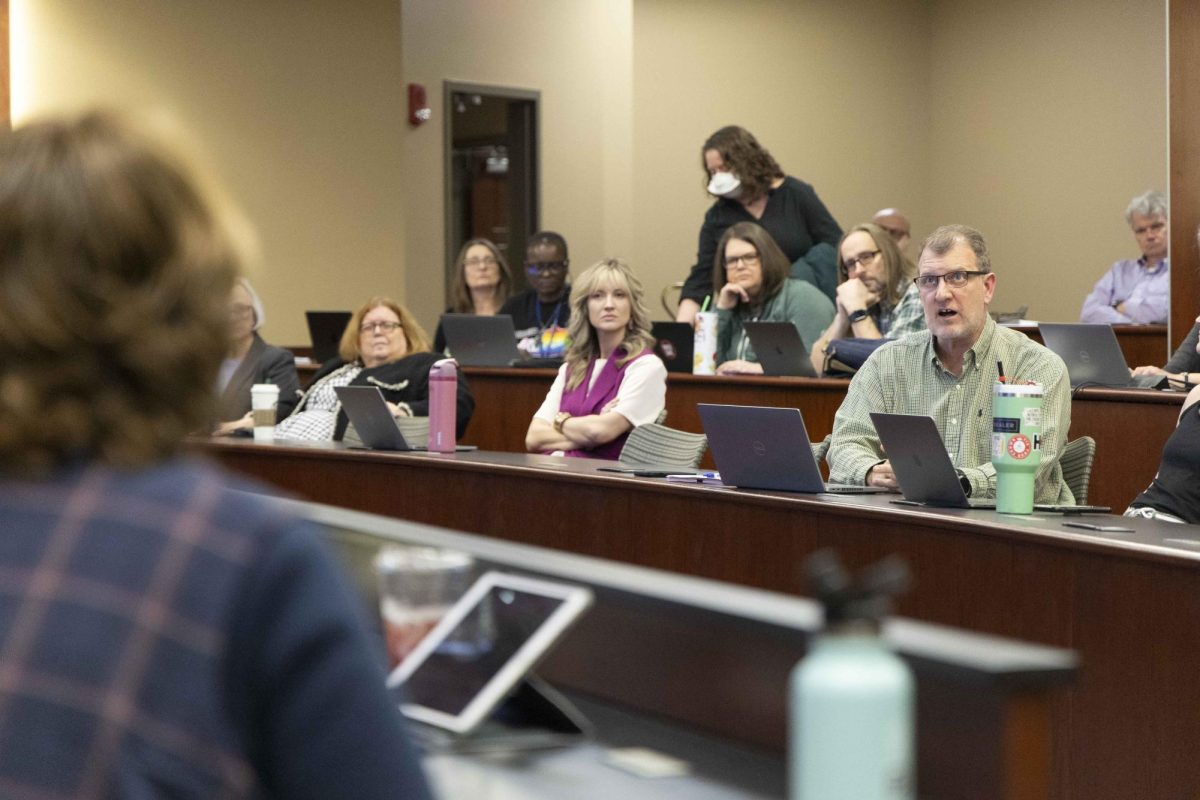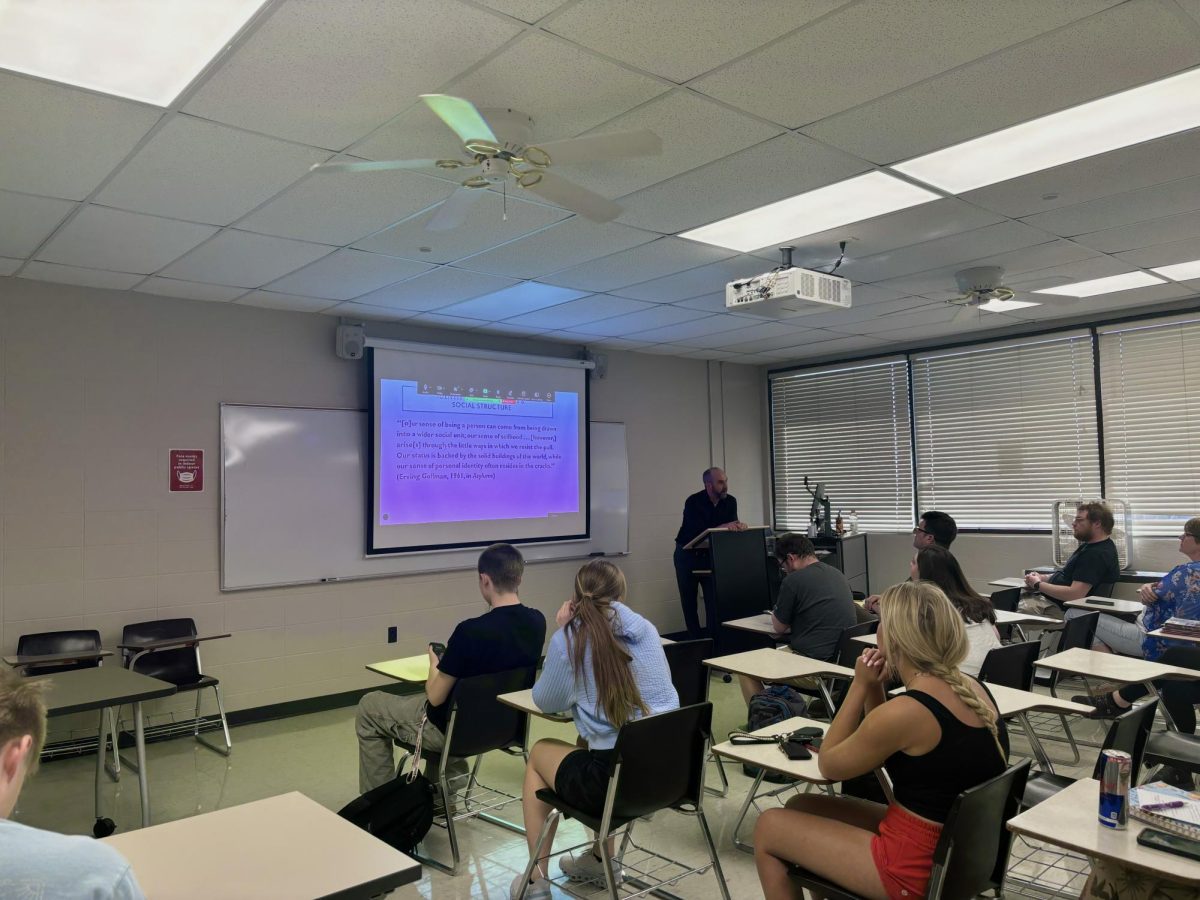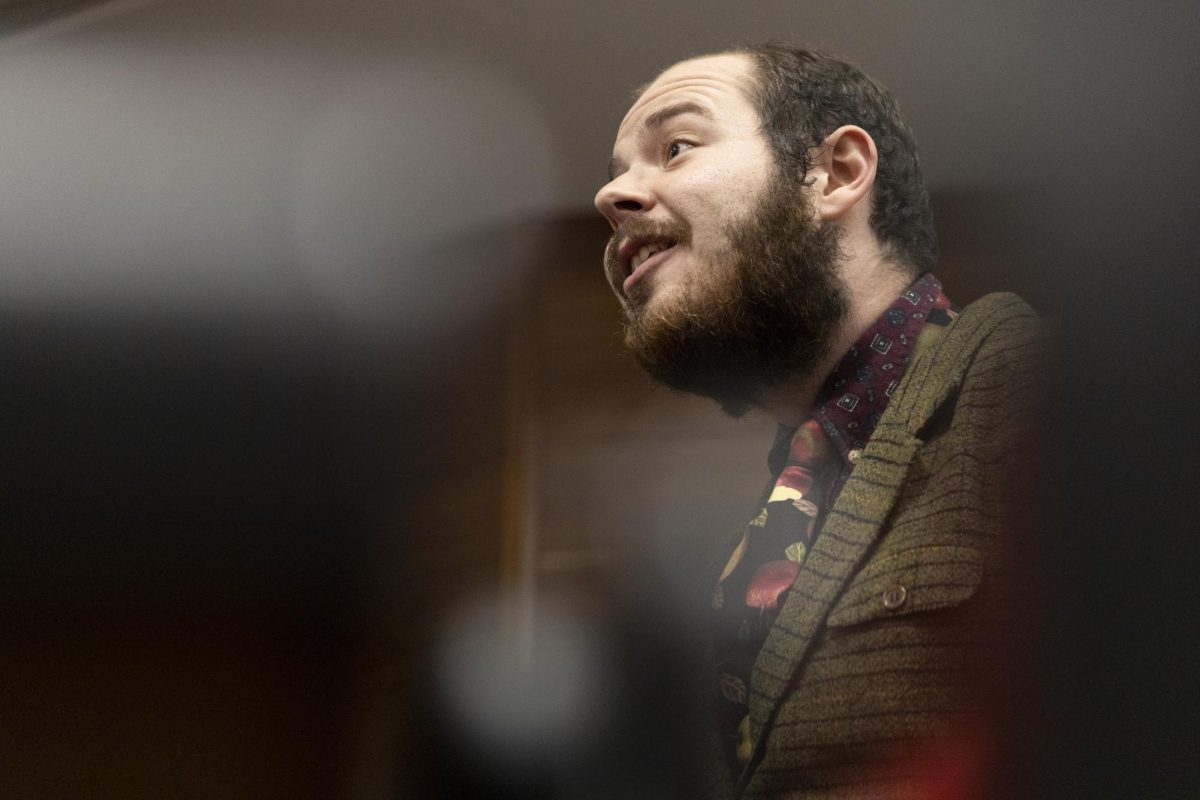Many paths to God
November 21, 2002
College campuses are commonly a breeding ground for diversity, and religion is one way students have found to mold their own identities.
Some people wonder who they are, puzzle over their purpose in life and wrestle with other general questions about human existence. For some, religion seems to make these answers clearer.
There are many religions, many different ways of worship. The prayers, from the East Coast to the Middle East, are whispered in many different languages.
For instance
Abdulle Mohammed-Sheik kneels on a cloth laid out on the floor of his room in Poland Hall. He faces the door. His forehead touches the ground. When he raises his head, he speaks Arabic.
The Louisville freshman, originally from Somalia, prays facing Mecca, a place he used to visit every Friday.
“Islam is peace,” he said. “When you are a Muslim, you are a peaceful man.”
This is one of the many times he drops to his knees to pray every day.
“You don’t get tired of worshiping God,” Mohammed-Sheik said. “He deserves at least five times a day. God has given you life, this world, everything in this world. Why would you not thank him five times a day?”
Muslim Student Association
Indian graduate student Ibrahim Faruqi said Islam began with Adam and Eve, the first Muslims on Earth.
Islam, which means “peace” in Arabic, requires a follower to submit to Allah, the same God worshiped by those of the Jewish and Christian faiths.
Muslims believe they should live life according to God’s revealed guidance and the sayings of Prophet Muhammad, as recorded in the Qur’an, Faruqi said.
This guidance is codified as the Five Pillars of Islam.
The first tenet is professing there is no God except Allah, and that Muhammad is his messenger.
The second tenet is praying to Allah five times every day. The third is giving to the poor, and generosity in all actions. The fourth is fasting during the month of Ramadan. The fifth: a pilgrimage to the holy city of Mecca.
Faruqi said following the tenets will improve society by bringing about a state of brotherhood. He always believed in Islam, he said, but he didn’t practice much until he came to America. Now he practices his religion daily.
Setting the record straight
After the Sept. 11 attacks, Faruqi spends more time trying to inform others about Islam. He said the Muslim Student Association (MSA), organized by two students and management and information systems professor Zubair Mohamed, now has about 50 members.
The group distributes a newsletter every semester telling others about the MSA, which helps dispel some of the misconceptions about Islam, Faruqi said.
He said Islam is not a bad religion. In fact, it’s the first religion that granted rights for women, including the right to inherit.
Muslims don’t fight with non-Muslims, Faruqi said, and they’re not warriors. Islam is a peaceful, loving religion, just like other religions.
He said some of the 9-11 bombers were Muslims, but the reason for the attack is actually anti-Islamic. He also said people shouldn’t label others because of race or religion.
“People get carried away by situations and by other people who exploit them,” Faruqi said. “You won’t label them as Hindu terrorists, so why is there a special label for Islamic terrorists? That isn’t fair.”
Hilltoppers for Christ
Another religion which endures misunderstanding is Christianity.
One Christian-based group on the Hill is Hilltoppers for Christ. Brad Carpenter, the group’s minister, said the students do more than just worship on Sundays. Programs include Bible study, free meals, devotions, social activities and church.
Carpenter said the organization doesn’t replace traditional worship for students, but tries to be like the churches of the First Century, where people would gather to build relationships with each other and Jesus Christ.
Bowling Green senior James Wright said he researched religion through the study of history and archeology. He said the Bible has been consistent with known facts, leading him to believe in Christianity.
Bowling Green senior Nathan McClellan said although he was raised in a church, he wondered what else was out there. He found Christianity to be the most logical fit for reality as he understood it.
There has always been interest in religion. As the terrorist attacks of 9-11 plague Muslims, charges of sexual abuse in the Catholic church haunt Christians. Religious issues are prominent, and, as Faruqi noted, correct information is essential.
Wright said Christianity has gotten a bad rap. He said the idea that Christianity forces people to convert is wrong.
“Certainly there were times when things like that broke out, but compared to other religions, Christianity rarely forces people to convert,” Wright said. “In fact, most Christians would think a forced conversion is not a true conversion.”
There are common bonds with other religions, Carpenter said. For instance, a shared belief of Judaism, Christianity and Islam is that Jesus Christ was a human being – an actual historical figure.

















